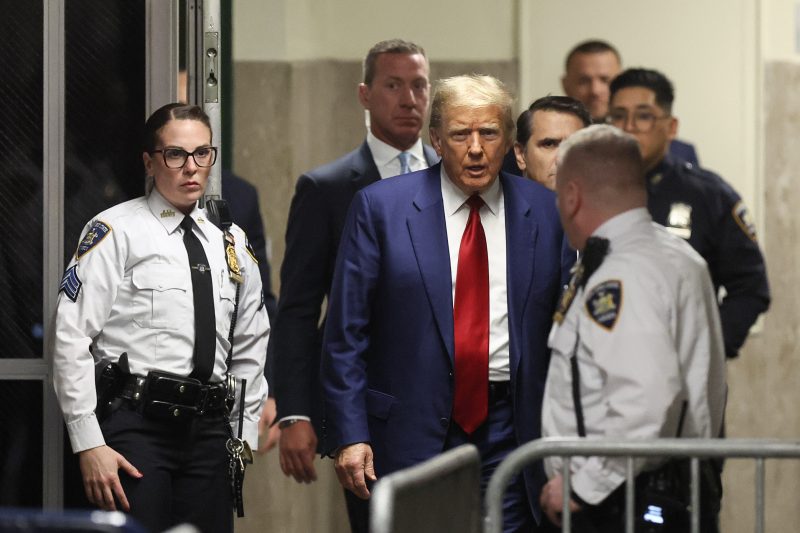In the realm of legal battles, strategies play a crucial role in shaping the outcome of a case. The current focus on President Trump’s hush money trial strategy has garnered significant attention within legal circles. The approach of deny, delay, and denigrate has been a contentious point of discussion, raising ethical and legal questions along the way.
Denial is a common tactic employed by many defendants in legal matters, and President Trump appears to be no exception. By steadfastly denying any wrongdoing or involvement in the hush money payments, the defense aims to cast doubt on the veracity of the accusations against him. This strategy not only serves as a way to maintain innocence in the eyes of the public but also puts the burden of proof squarely on the prosecution.
Delay tactics are often utilized to prolong legal proceedings, creating hurdles and challenges for the opposing party. In the case of the hush money trial, the defense’s strategy to delay the proceedings through various legal maneuvers aims to wear down the prosecution and create opportunities for negotiation or settlement. By dragging out the trial, President Trump’s legal team hopes to weaken the case against him and potentially sway the outcome in their favor.
Denigration is a more contentious aspect of the trial strategy, involving attacks on the credibility and character of the accusers. By seeking to discredit the witnesses and cast doubt on their motivations, the defense aims to undermine the prosecution’s case and shift the focus away from the alleged wrongdoing. This combative approach has the potential to not only tarnish the reputation of the accusers but also create a cloud of uncertainty around the accusations themselves.
The deny, delay, and denigrate strategy employed by President Trump’s legal team raises important questions about the ethics and effectiveness of such tactics in legal proceedings. While denial can be a legitimate defense mechanism, its overuse or misuse can erode public trust in the legal system. Similarly, excessive delays can undermine the pursuit of justice and prolong the suffering of the victims.
Denigration as a strategy can have far-reaching consequences, not only for the individuals involved but also for the integrity of the legal process. By attacking the character and credibility of the accusers, the defense risks turning the trial into a spectacle of personal attacks rather than a quest for truth and justice.
As the hush money trial continues to unfold, the success or failure of President Trump’s legal strategy remains to be seen. While deny, delay, and denigrate may offer short-term advantages in the courtroom, its long-term implications for the legal system and public perception are open to debate. It is up to the courts, the legal community, and society at large to reflect on the ethical dimensions of such trial strategies and strive for a system that upholds justice, fairness, and integrity.

